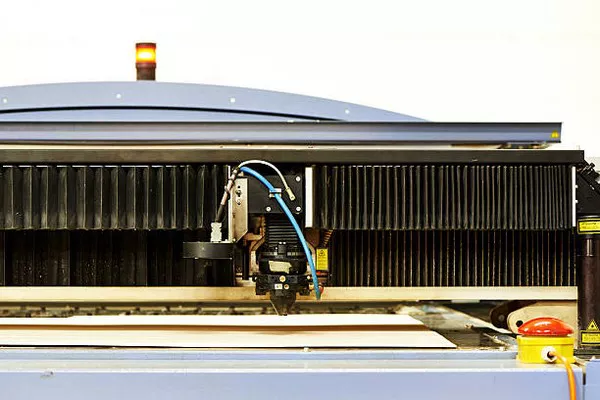Generators are invaluable tools for providing backup power during outages, supporting construction sites, or supplying electricity in remote areas. However, one critical question looms for both casual users and serious buyers: how long do generators last? Understanding the lifespan of generators involves several factors, including type, maintenance, usage patterns, and environmental conditions. This article explores these elements in depth, providing insights into maximizing the longevity of your generator.
Types of Generators
Generators come in various types, each designed for specific purposes. The two most common types are:
Portable Generators: These are versatile, easily movable units that provide temporary power for tools, lights, and appliances during outages or outdoor activities. They typically run on gasoline, propane, or diesel and offer lower power output compared to standby generators.
Standby Generators: Permanently installed outside a home or business, these generators automatically kick in during a power outage. They are often fueled by natural gas or propane and can provide a higher wattage output, suitable for entire homes.
Lifespan Estimates
Portable Generators
Portable generators generally have a lifespan ranging from 1,000 to 3,000 hours of operation. This translates to about 5 to 15 years, depending on usage and maintenance practices.
Factors influencing the lifespan include:
Frequency of Use: Generators that are used frequently or for extended periods are more likely to wear out quickly. Occasional use may extend their life.
Fuel Type: Gasoline engines tend to have shorter lifespans due to issues like fuel degradation and carburetor problems. Diesel engines are typically more durable, offering longer service life.
Load Management: Running a generator at or near its maximum capacity for extended periods can lead to faster wear. It’s advisable to operate the generator within its rated load.
Standby Generators
Standby generators usually last longer than their portable counterparts, with an average lifespan of 3,000 to 5,000 hours of operation, or 10 to 30 years. The following factors affect their longevity:
Automatic Maintenance: Many standby generators come with built-in maintenance schedules. Regular self-tests and automatic oil changes can enhance longevity.
Installation Quality: A professionally installed generator that is properly connected to the electrical system tends to perform better and last longer.
Environmental Conditions: Generators installed in harsh environments (extreme temperatures, high humidity) may experience shorter lifespans. Ensuring proper housing and ventilation can mitigate these effects.
Key Factors Affecting Generator Longevity
Maintenance Practices
Regular maintenance is paramount to ensuring your generator operates smoothly over its intended lifespan. Key maintenance activities include:
Oil Changes: Changing the oil regularly helps reduce engine wear and tear. For portable generators, consider changing the oil every 50 to 100 hours of operation, while standby generators might follow a more scheduled approach based on the manufacturer’s guidelines.
Air Filter Replacement: Clogged air filters can hinder engine performance. Regularly checking and replacing filters will keep the engine running efficiently.
Fuel System Maintenance: For gasoline-powered generators, using fuel stabilizers can prevent degradation and carburetor issues. For diesel engines, regular fuel filter changes are essential.
Battery Care: Standby generators typically have batteries that should be tested and replaced as necessary. Keeping the battery charged is crucial for reliable performance.
Usage Patterns
How a generator is used significantly influences its lifespan. Continuous, heavy use can lead to premature wear, while moderate, intermittent use tends to enhance durability. Additionally, avoiding overload conditions and ensuring the generator operates within its recommended wattage can prevent strain on the engine.
Environmental Factors
Generators operating in extreme climates face unique challenges. High temperatures can lead to overheating, while excessive moisture can cause rust and corrosion. Protecting your generator from harsh conditions through proper housing, ventilation, and regular inspections can enhance its longevity.
Quality of the Generator
The quality and brand of the generator play a significant role in determining its lifespan. Higher-end models from reputable manufacturers typically use better materials and engineering practices, which contribute to longer life. When investing in a generator, it’s essential to consider not just the upfront cost but also the potential long-term value.
Signs Your Generator Needs Attention
To extend the life of your generator, it’s crucial to be aware of warning signs that may indicate it needs maintenance or replacement. Some common indicators include:
Unusual Noises: If the generator produces strange sounds, it may be a sign of mechanical issues.
Difficulty Starting: If the generator struggles to start or requires multiple attempts, it may indicate problems with the battery or fuel system.
Uneven Power Output: Flickering lights or appliances struggling to run can signal an underlying electrical issue.
Frequent Breakdowns: If your generator requires frequent repairs, it may be more cost-effective to consider a replacement.
Enhancing Generator Lifespan
To maximize the lifespan of your generator, consider implementing the following strategies:
Regular Inspections: Schedule periodic inspections to check for wear and tear, and address any issues proactively.
Invest in a Quality Model: Choose a generator from a reputable manufacturer, considering features like warranty, customer support, and parts availability.
Store Properly: When not in use, store your generator in a dry, protected area. Use covers to shield it from dust and moisture.
Document Maintenance: Keeping a log of maintenance activities can help ensure you stay on schedule and identify any recurring issues.
Educate Yourself: Understanding how your generator works can help you recognize problems early and take appropriate action.
See Also The Most Powerful Portable Generator: A Comprehensive Guide
Conclusion
Generators are crucial tools that can provide reliable power in various situations, but their lifespan can vary significantly based on type, usage, and maintenance. Portable generators generally last between 1,000 to 3,000 hours, while standby generators can operate for 3,000 to 5,000 hours or more. By understanding the factors that influence generator longevity and implementing proper care practices, users can maximize the lifespan of these essential devices. Whether you’re a homeowner, contractor, or outdoor enthusiast, investing time and effort into maintaining your generator will ensure it serves you well for years to come.
You Might Be Interested In

